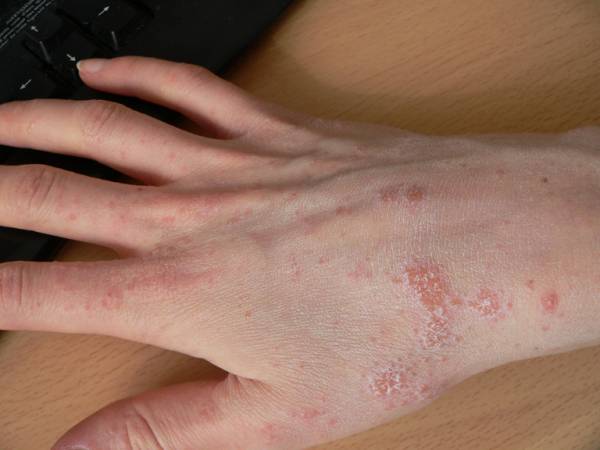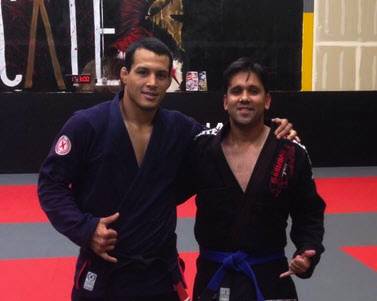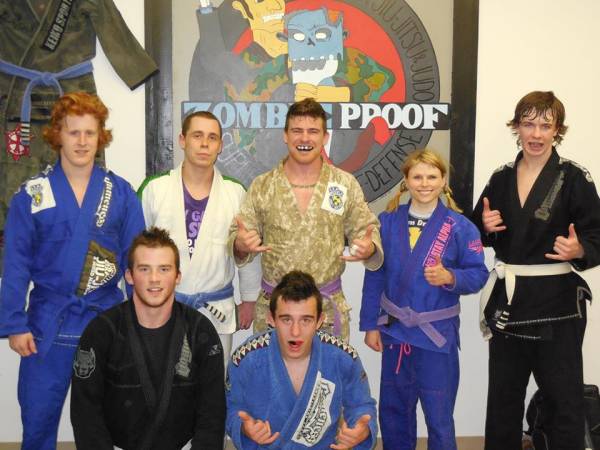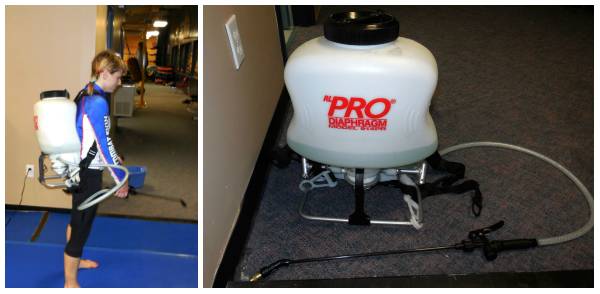I have a secret to tell you. It happened many years ago, so I’m hoping the people involved will find it funny looking back at it.
I had been training Brazilian jiu jitsu for about a year and during the beginning of my training, I didn’t know you could catch skin infections from rolling with people. I wore shorter shorts (not hot pants) and sleeveless tops to class to try and stay cool. Eventually, I saw someone with ringworm and started to become paranoid about catching something myself.
One night I started scratching my legs and couldn’t stop. They were covered in small red bumps and the itching was driving me insane. Of course, I believed I could diagnose myself via the Internet and I began searching my symptoms online. I became convinced I had scabies and so I booted ‘er to the closest walk-in clinic. For those of you who don’t live in Canada, walk-in clinics are staffed by doctors who seem to hate life and their patients.
So I told the doctor I thought I had scabies based on my Internet research. He examined my legs from a couple of feet away and gave me a prescription for Kwellada lotion. He also told me that I would have to launder everything I’d come into contact with and my teammates would have to be treated as well. I contacted my instructor and the whole team helped to disinfect the gym. They also purchased treatment and followed the instructions they were given to prevent and kill the infestation.
After my symptoms disappeared, my legs broke out again. This time I was able to see a real doctor and I was diagnosed with an allergy to the lotion I got for free at a hotel. Oops! Sorry guys! Still, since I had that scare, I’ve kept my skin covered during training.

An example of scabies.
The Things You Can Catch Doing BJJ
I’ve heard about people contracting ringworm, warts, herpes, staph, and impetigo from training, and fortunately, I’ve never caught any of those. What I believe I have caught is herpes simplex 1, which I will have forever.
I was tested for the virus before I began training jiu jitsu as part of a research study and the result was negative. I was recently tested again and the result was positive, although I am asymptomatic. My personal life is very boring so I would say it’s likely I was infected on the mats. I’ve seen other cases of mat herpes over the years and I find it disturbing. Did you know that if you show up to class with a cold sore, you could infect everyone you roll with?
A Doctor’s Advice for BJJ Athletes
There is so much misinformation out there regarding the prevention of skin infections and it’s sometimes provided by companies who want to sell you expensive products. So, I decided to ask Dr. Sabe De, a black belt (first dan) in Shotokan Karate and a Robson Maura BJJ blue belt out of ZombieProof Jiu Jitsu in Sydney, Nova Scotia, for his input.

Dr. De on the right.
Dr. De is a cardiologist and the founder of FightMD, a website that provides medical information for fighters including facts about brain injury, weight cutting, and preventing hand injuries. He gave some great advice about concussions on The BS Show, a local MMA podcast, and I thought he would be the perfect person to help us stay healthy on the mats. He provided me with his opinions based on his own reading, talking to those more experienced and his knowledge as a physician.
Regarding herpes simplex 1, he explained:
HSV-1 is a skin infection also called herpes gladiatorum, given its association with combat sports like wrestling. People develop itching, or blisters of the skin. It occurs via skin-to-skin contact with the site of infection. There can be a latent period, during which the infection is not recognized for several days. If someone has it, they need antiviral medications and are still infectious for up to one week after starting oral medications. The only way to prevent HSV-1 infection is to avoid rolling or sparring with someone who is actively infected. Skin checks should be performed before tournaments by medical professionals.
Regarding the less permanent conditions, Dr. De stated:
I believe that rashguards with full sleeves are helpful in minimizing the skin-to-skin contact between athletes if one is infected. There is some thought that abrasive shirts made of polyester and cotton combinations cause friction and contribute to skin break down and increase the infective risk.
Go full spats, too, I say.
And what about soaps formulated just for combat sports? Are they necessary? Dr. De says no.
The type of soap used does not really matter. Any basic soap will disinfect and remove dirt particles, etc. In general, studies by the FDA have shown no link between antibacterial products and declining infection rates. There is weak evidence of tea tree oil reducing MRSA, but this is not scientifically substantiated. The same goes for shampoos. Most germs infect immediately especially if there is skin breakdown. Showering is part of general hygiene and removes dirt and sweat that can contribute to infection but will not necessarily remove an organism that has already “entered” through a skin break.
The Doctor’s Advice for Club Owners
Dr. De stressed that the best method to keep students’ skin healthy is vigilance by club owners. I travel to Sydney for work a lot and when I’m there I always train at ZombieProof, where Dr. De trains, as well.

I asked the owner, Kent Peters, what other methods they used to keep the mats clean. He explained:
We mop daily with industrial strength disinfectant and cleaner, we sweep at least twice daily but usually more, disinfect all gear and equipment daily, we will not allow stinky gear on the mat and I have encouraged the culture of calling out people for stinky gear. I personally wipe all of my gear down with disinfectant wipes at the end of every class and I encourage showers as soon as possible after class. Our gym stays clean and outbreak free due not only to the obsessive cleaning habits but also to the attitude we promote openly with our members. Don’t stink and wash often.
At Zombieproof, flip-flops are required for walking off the mats. I mean, think about it – you know it’s gross for people to walk in their shoes on the mat. How is them walking barefoot on and off the mat any different?
Dr. De added that owners and instructors should also always be “looking for skin infections on students (especially beginners who may not know) and encouraging them not to return to rolling until they are seen by a physician.”
My club, Titans MMA, has a little backpack we wear to spray hospital-grade disinfectant on the mats after class. You may recall seeing Kurt Osiander spraying his mats with a similar one in the documentary he made with Stuart Cooper. Kurt and Kent have the flip-flop policy in common, as well.
Another great article on the topic of training clean is A Microbiologist’s Take on BJJ on the Tangled Triangle blog. In that article, you will learn the best way to shower and clean your gear including your belt (wash your belt, it’s not magic, unless by magic you mean crawling with disease).
And remember to train clean, everybody – you know I am!







